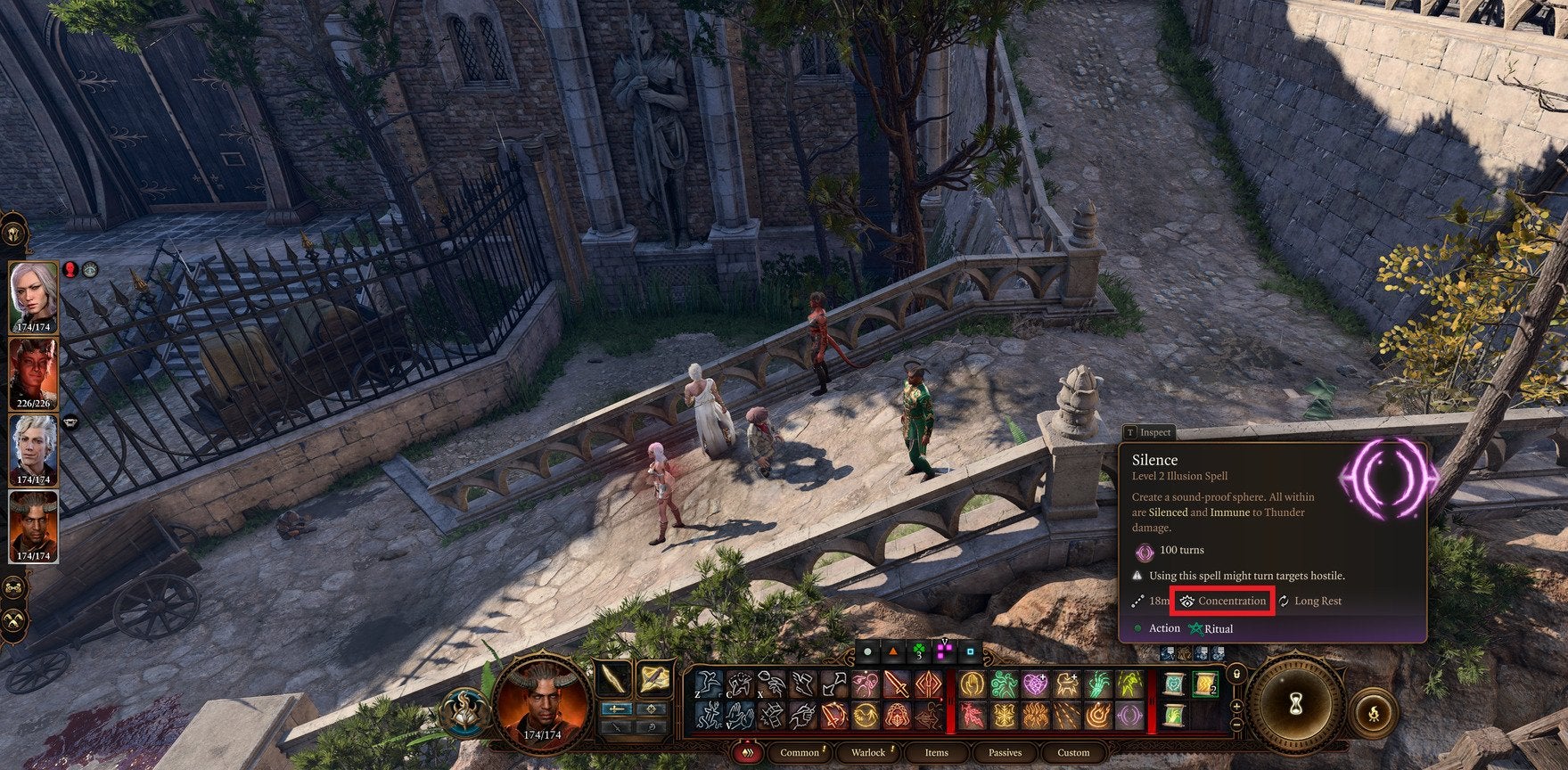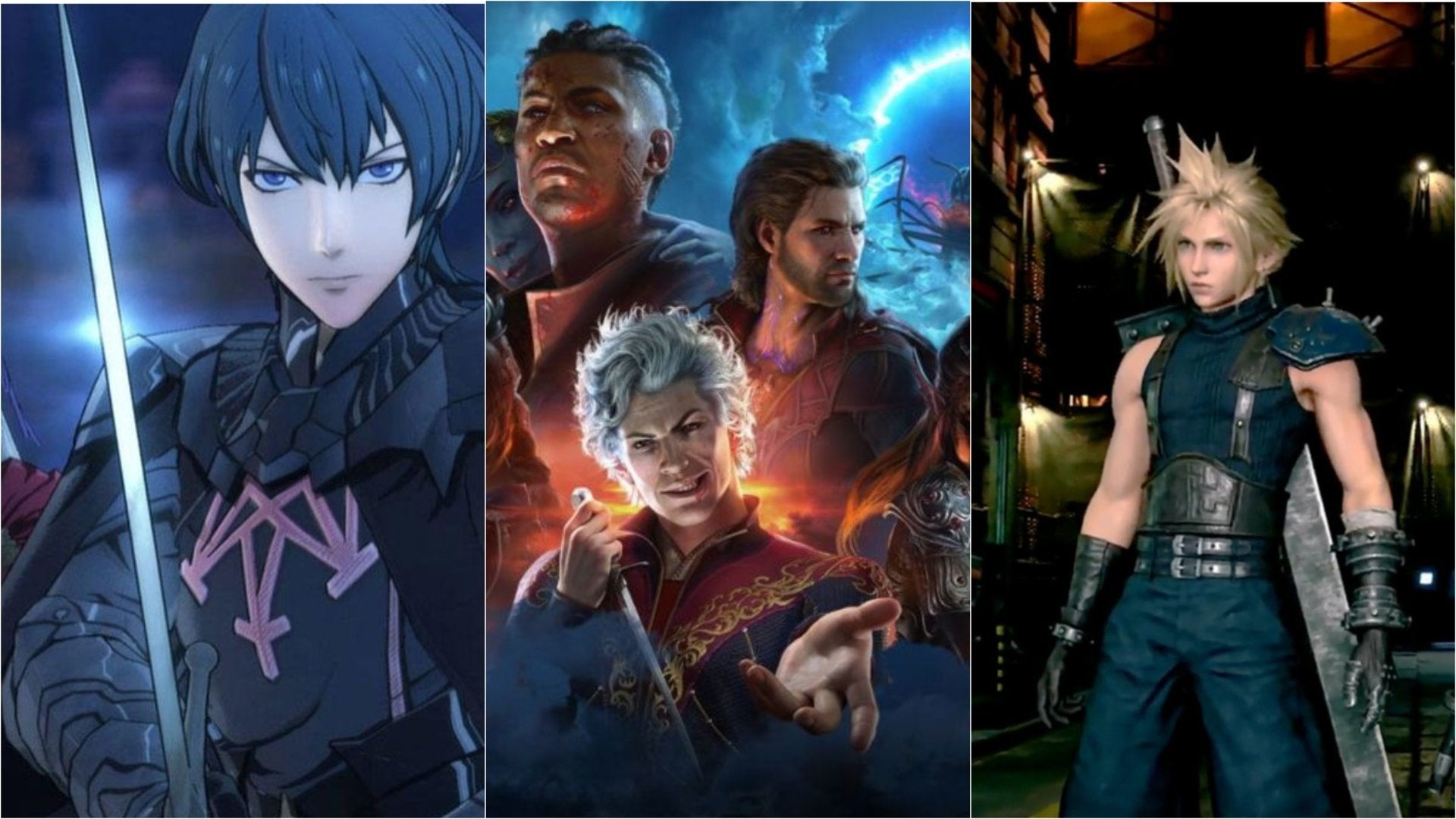![]() Key Takeaway
Key Takeaway
RPG is an acronym that stands for “Role-Playing Game.” Any game classified as an RPG (either tabletop or digital) involves players acting as characters in a fictional setting. This can be as pre-existing characters or ones created by the players themselves.
Lovers of adventure games likely already know what RPG stands for in terms of genres. However, for the uninitiated, this acronym might be a bit confusing. Although the full words of this abbreviation don’t clarify things that well, the definition behind them is easy to grasp.
Table Of Contents
The Definition of RPG in Gaming

In terms of game genres, RPG stands for “Role-Playing Game.” A Role-Playing Game is any game where players take control of characters in a fictional setting. This can be in tabletop games, video games, or other forms of interactive media.
More often than not, players in RPG games go on some sort of adventure. There’s usually an important objective that they need to accomplish—sometimes referred to as a “main quest.” Along the way, players usually meet colorful NPCs (non-player characters), encounter aggressive enemies, and take on side quests that can have little to do with the main quest.
There are also many traits associated with RPG games that help keep the adventure interesting as players travel across an alternate world. Over the years, these have become synonymous with RPG games despite not being exclusive to them.
The Main Characteristics of RPG Games
- Character Customization: Being able to create a character and choose their appearance, starting stats, and abilities.
- Character Statistics (Stats): Individual parameters that govern a character’s proficiency in a given area. For example, a Strength stat determines how effective a character is at breaking down doors and how hard they can hit enemies with a heavy melee weapon.
- Leveling Up: After gaining experience from completing quests and defeating enemies, characters can become more powerful by increasing their stats and obtaining new abilities.
- Abilities (Skills, Feat, etc.): Every character has individual traits that make them good at completing certain tasks. For example, a character can have a lockpicking ability that lets them open locked doors with certain non-key tools.
- Turn-Based Combat: When characters encounter enemies, they can fight their foes by taking turns performing actions. The player characters each have a turn (their allocated time slot) during which they can act, but so does each enemy.
- Originally, when all RPGs were tabletop games, this was the only way to effectively work through enemy encounters. However, after RPGs started becoming video games, this style of combat remained as many people were used to it and enjoyed this aspect of gameplay. This is opposed to an Action RPG, where events happen in real time.
- Party Gameplay: When more than one player begins an RPG, all of the player characters group up as traveling companions. This group is called a “Party” and all members work together to complete quests and defeat enemies.
- Exploration: The party must travel from place to place to accomplish their goals. On top of that, they may investigate various locales for added fun.
- Inventory Management: All player characters can carry a certain number of items to help them on the journey. However, they are limited in how much they can physically carry. As such, characters need to choose what to take with them and what to leave behind.
- Quests: A quest is an objective that player characters must complete to make progress in the game. There are two types of quests: main quests and side quests.
- Main quests progress the primary storyline.
- Side quests are optional objectives that players can complete to gain extra experience and loot.
- Narrative Direction: There’s always one or more storylines in an RPG. Often, there’s a primary and multiple secondary ones; a main quest and side quests. Every quest is usually broken up into multiple steps for simplicity and better pacing.
RPGs Versus Fake RPGs
The term RPG sometimes gets thrown around without much reason. You’ll sometimes see games labeled as RPGs despite them not possessing many (or any) of the above characteristics. While true RPGs don’t need to have everything we listed, they certainly need to have at least a few of them.
For example, in the RPG video game Sekiro: Shadows Die Twice, you play as a ninja who exists in his world before you take control of him. As such, you can’t change how he looks, his starting stats, or his main weapon. However, you can influence his stat growths as you level up, you can choose which of his secondary weapons are used, and which of his abilities you strengthen.
What RPG Stands For (Weapons)

If you’re playing an FPS (First-Person Shooter) game such as one from the Call of Duty or Battlefield series, you’ll likely come across a large type of weapon called an “RPG.” While it’s humorous to think of such long-barreled guns as portable Role-Playing Games stuck in a metal tube, that’s not what they are in actuality.
In regards to weapons, RPG stands for “Rocket-Propelled Grenade.” Much like how it sounds, such weapons propel grenades outward from their barrels with the use of rocket-like launching mechanisms. They act similar to grenade launchers, except RPGs can send their payload much farther.
List of Popular Tabletop RPGs
There are several tabletop RPG series that have given players amazing adventures over the years. In no particular order, here are some of the most renowned:
- Dungeons and Dragons
- Call of Cthulhu
- Warhammer
- Traveller
- Deadlands
- Savage Worlds
- Pathfinder
- Shadowrun
- Dungeon World
- Fate
- Star Wars RPG
- Marvel Multiverse Role-Playing Game
List of the Best Video Game RPGs
We can’t have an article about RPGs without a few shoutouts to some of the best video games this genre has to offer! Below is a list featuring some of the most incredible digital role-playing games:
- Path of Exile
- The Elder Scrolls V: Skyrim
- The Elder Scrolls IV: Oblivion
- The Elder Scrolls III: Morrowind
- Cyberpunk 2077
- Monster Hunter: World
- Elden Ring
- Dark Souls
- Dark Souls 2
- Dark Souls 3
- Bloodborne
- Sekiro: Shadows Die Twice
- Baldur’s Gate 3
- The Witcher
- The Witcher 2: Assassin of Kings
- The Witcher 3: Wild Hunt
- Fallout 4
- Fallout: New Vegas
- Fallout 3
- Final Fantasy VII
- Fire Emblem: Three Houses
Ready to dive head-first into your next role-playing adventure, but don’t know what to play? Consider checking out Elden Ring and Baldur’s Gate 3! They’re both extremely fun and satisfying—plus we’ve got tons of guides about them to help you if you get stuck. Be sure to pack lots of healing items, fellow adventurer.


